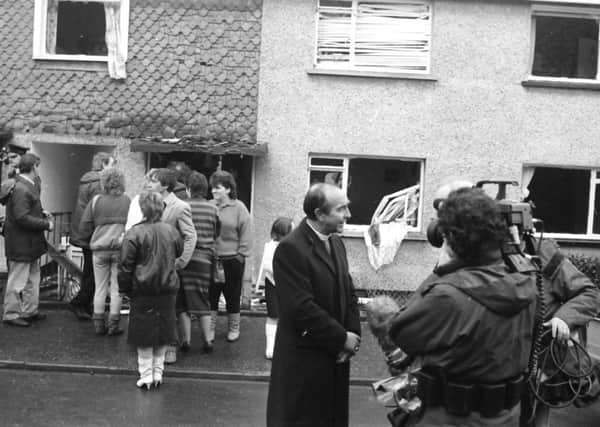Tullyally bomb attack a '˜forgotten atrocity'


Cynthia Adams, who was only 17-years old at the time and a near neighbour of Mr Doherty when the lethal blasts occurred, this week described the attack as one of the “forgotten atrocities” of the Troubles in the city.
“Everybody was living through the Troubles but it hadn’t directly affected our community until that time,” said Ms Adams. “It was the first time we had a major event and, because other events are constantly, talked about, what happened to us on that night has been consigned to history.”
Advertisement
Hide AdAdvertisement
Hide AdLooking back from a distance of three decades, Ms Adams vividly recalled the horrific impact of the attack.
“It was a horrendous, horrendous event. My father suffered ill-health after that. It affected his nerves. I just remember people running out on the street, screaming, and fathers carrying their children out and people covered in blood. It wasn’t a nice experience. It seems to be one of those events that it wasn’t on the scale of other events and has been consigned to a box somewhere.”
While the attacks were roundly condemned by church leaders and politicians at the time, there were also recriminations over who was responsible.
Although the bombings were never claimed, RUC Divisional Commander, Chief Superintendent David Turkington, describing the incident as an “outrageous and sectarian attack,” said he believed the IRA was responsible.
Advertisement
Hide AdAdvertisement
Hide AdMartin McGuinness, who was Sinn Féin vice-president at the time, however, noted that the IRA had denied responsibility, and suggested it could have been the work of an RUC-British Army ‘dirty tricks’ department.
The PSNI believed that three bombs had been placed in holdall bags and driven to Tullyally in a taxi that had been hijacked in the Bogside. One of the bombs, which had been placed at the corner of the Ardmore Road, was successfully defused.
“From what I remember from reports was that it was Semtex that had been placed in plastic bags and that were transported from the Bogside in a hijacked taxi,” said Ms Adams. “It was my late father’s birthday and he was tottering about in our garage when one of the bombs exploded. As can be expected my father was hospitalised and suffered severe mental health issues afterwards.”
Despite the deeply traumatic nature of the events Ms Adams remembered the collective community spirit that was shown in response to the atrocity. St. Vincent De Paul among others, for example, held door-to-door visits to help those affected